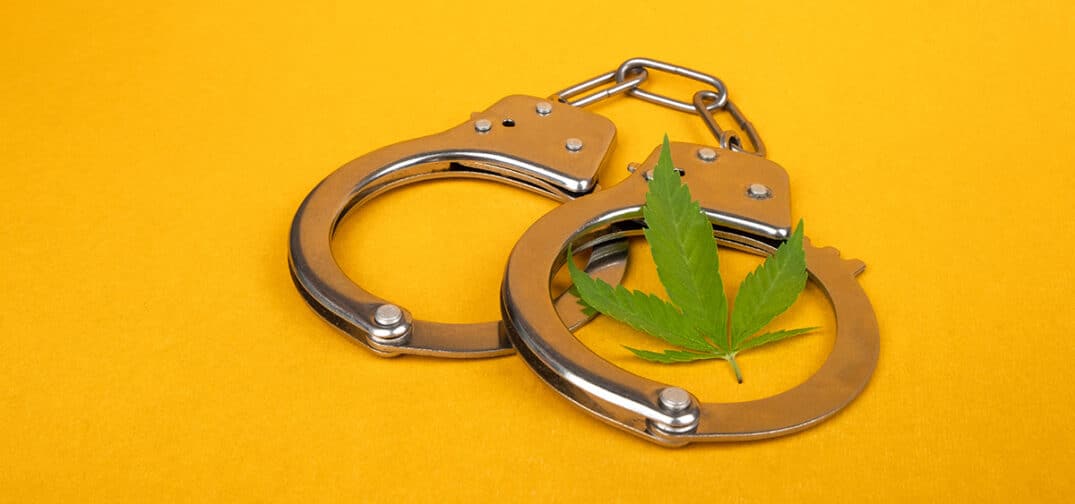In 2023, U.S. law enforcement made over 217,000 arrests for marijuana-related offenses, with possession alone accounting for 84 percent of those arrests, according to new data from the FBI. While this marks a slight decrease from the previous year, when over 227,000 marijuana arrests were reported, advocates argue that the numbers are still unacceptable given the growing public support for legalization.
In addition, the new data reveals that racial disparities in enforcement remain an ongoing issue. Black Americans, who represent about 13.6 percent of the U.S. population, accounted for 29 percent of drug arrests in 2023, according to the data. This is consistent with long-standing evidence that people of color are disproportionately targeted for cannabis-related offenses, even though usage rates between racial groups are similar.
Although the data shows a slight decline in cannabis arrests from the previous year, NORML’s Deputy Director Paul Armentano pointed out that the data provided by the FBI is incomplete. “At a time when voters and their elected officials nationwide are re-evaluating state and federal marijuana policies, it is inconceivable that government agencies are unable to produce more explicit data on the estimated costs and scope of marijuana prohibition in America,” he stated. The specific issues highlighted by NORML include:
- Incomplete Reporting: Some law enforcement agencies do not report crime data to the FBI, leading to an undercount of cannabis-related arrests. For 2023, 10% of agencies failed to submit data, covering 6% of the U.S. population.
- Inconsistent Data: The FBI’s reporting contains discrepancies, with varying arrest numbers across different sections of their report, making it hard to draw consistent conclusions.
- Unclear Classification: A category for “unspecified drug abuse violations” includes over 53,000 arrests, making it unclear how many of these might involve marijuana.
- Inadequate Coverage of Federal Data: The DEA’s annual report on federal marijuana arrests and seizures for 2023 has not been released, leaving a gap in understanding national cannabis enforcement trends.
- Estimation Procedures: FBI estimates some figures using data from participating agencies, meaning the total number of arrests is not an exact count but an approximation, further complicating the assessment of cannabis enforcement.
- Impact on Policy: The incomplete and inconsistent data hinder the ability to accurately assess the scale and costs of prohibition, complicating efforts to reform cannabis laws and address the consequences of criminalization.
With a growing consensus among voters and political leaders favoring legalization, calls to address the inequities in cannabis enforcement are intensifying. Both current U.S. Presidential candidates have called for cannabis to be legalized, and a DEA hearing regarding the proposed reclassification of cannabis as a Schedule III substance under the Controlled Substances Act is scheduled for December 2nd.
Get daily cannabis business news updates. Subscribe
End
